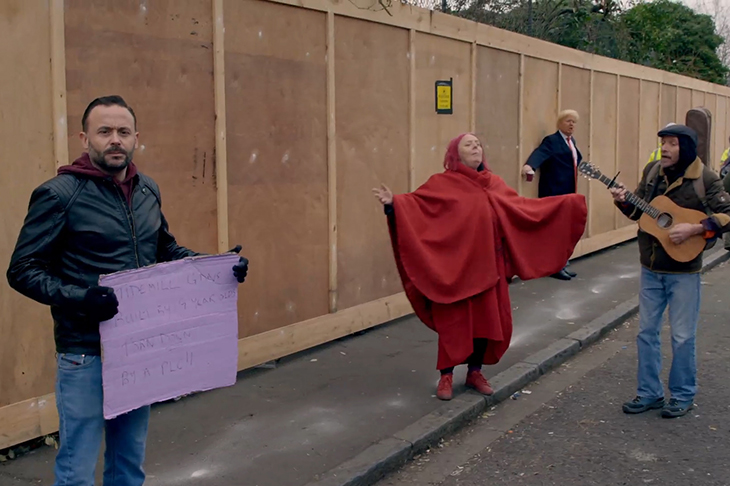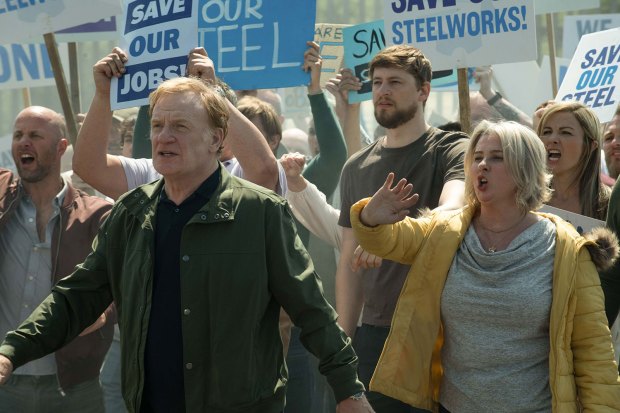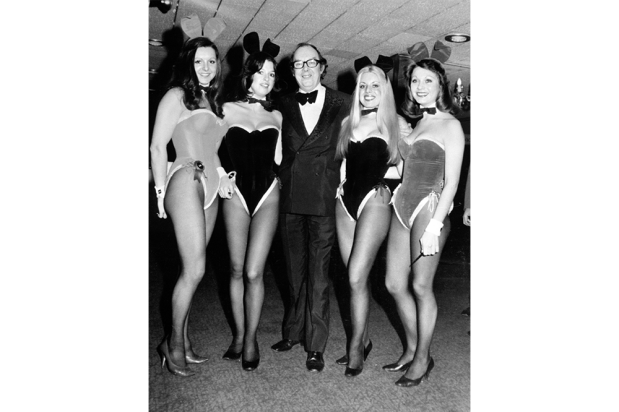BBC2’s How the Middle Classes Ruined Britain (Tuesday) began rather promisingly. ‘I’m a working-class comedian who voted Leave,’ announced presenter Geoff Norcott, ‘and I think it’s about time you lot heard some home truths.’ But then came the programme itself — which turned out to be the TV equivalent of a footballer who, faced with an open goal, dribbles about aimlessly before falling over.
The first bit of aimless dribbling followed the shock news that middle-class parents often try to get their children into the best local schools, sometimes by claiming to live nearer to them than they do. To prove it, Norcott joined Havering Council’s ‘dedicated team of sleuths’ on a expedition to root out the fakers — the trouble being that, as the team told him and as we saw for ourselves, the wrongdoers were by no means all middle class. (Strangely, it was almost as if some working-class people want a good education for their children too.)
Next came an even more inconclusive visit to a housing development in Deptford that’s much opposed by ‘the locals’. This might have been a neat way to back up Norcott’s argument about gentrification destroying ‘traditional working-class communities’ — except that the development is social housing for council tenants being built by the not-for-profit Peabody Trust, and the opposing locals are middle-class lefties whose idea of effective protest is to ceremonially pour salt on the pavement so as to ‘ward away the greedy, evil spirits’ of capitalism.
No wonder that the programme soon gave rise to a somewhat different conspiracy theory from the one Norcott intended. Could it be that the BBC was basically stitching him up like a kipper (perhaps even on a plastic ice pillow)? On the one hand, he was allowed to put himself forward as a heroic fighter for his usually unheeded people. On the other, the generic TV-presenting duties he was required to carry out — essentially, being in a series of slightly odd situations and finding them slightly odd — seemed designed to leave us mildly diverted rather than denounced. There is, for example, a strong case to be made that the middle classes heartily approve of social housing just as long as it’s not too near them, but that hopelessly confused visit to Deptford duly failed to make it.
This new conspiracy theory received a further boost when Norcott, for no obvious reason of relevance to his thesis, did a spot of middle-class dating. Having picked up some posh flirting tips from a woman with a white-shirt obsession, he headed to a posh singles event, where he tried hard but unavailingly to find somebody who’d look down on him.
Occasionally, Norcott did acknowledge some of the programme’s many contradictions — not least that, as a Tory (which is enough to be his USP as a comic), he’s all in favour of people bettering themselves. During a nostalgic visit to the warm-hearted old council estate where he grew up, he caught himself doing ‘the classic working-class thing, saying “It was better here”,’ even though ‘what I’m striving for for my son is a long way from this’. Later, he admitted to a guilty twinge of pleasure at the benefits that gentrification can bring — up to and including ‘a new Waitrose’. Nonetheless, any hopes that these realisations would lead to a richer and more interesting programme were soon dashed, as he immediately reverted to his default position of him versus the poshos.
In the meantime, the biggest contradiction of all went entirely unacknowledged: Norcott’s whole premise was that he’s different from the middle classes, yet he was quiveringly indignant at the thought that they might consider themselves different from him.
Now and again, there were tantalising glimpses of the programme we might have had. Towards the end, for instance, Norcott unarguably pointed out that ‘traditional ideas of patriotism and gender identity get ignored’ by the liberal middle classes who insist instead that ‘we toe their line’. But, though we can probably guess what these ideas are, neither Norcott nor either of the two working-class people he briefly met on Tuesday were so indiscreet as to mention them — which, given that this was the BBC, is probably just as well.
In fact, Norcott was always aware the organisation he was making the programme for is the epicentre of the attitudes he was attacking (when he remembered to). The longer it went on, the more anxious he seemed that it would be too heretical for the BBC to broadcast. Unfortunately, he needn’t have worried. Whether through his own failure to work out exactly what he wanted to say, or by some cunning backstage machinations, How the Middle Classes Ruined Britain came across less as a brave stance for an underrepresented point of view and more as a badly missed opportunity.
Got something to add? Join the discussion and comment below.
Get 10 issues for just $10
Subscribe to The Spectator Australia today for the next 10 magazine issues, plus full online access, for just $10.
You might disagree with half of it, but you’ll enjoy reading all of it. Try your first month for free, then just $2 a week for the remainder of your first year.














Comments
Don't miss out
Join the conversation with other Spectator Australia readers. Subscribe to leave a comment.
SUBSCRIBEAlready a subscriber? Log in